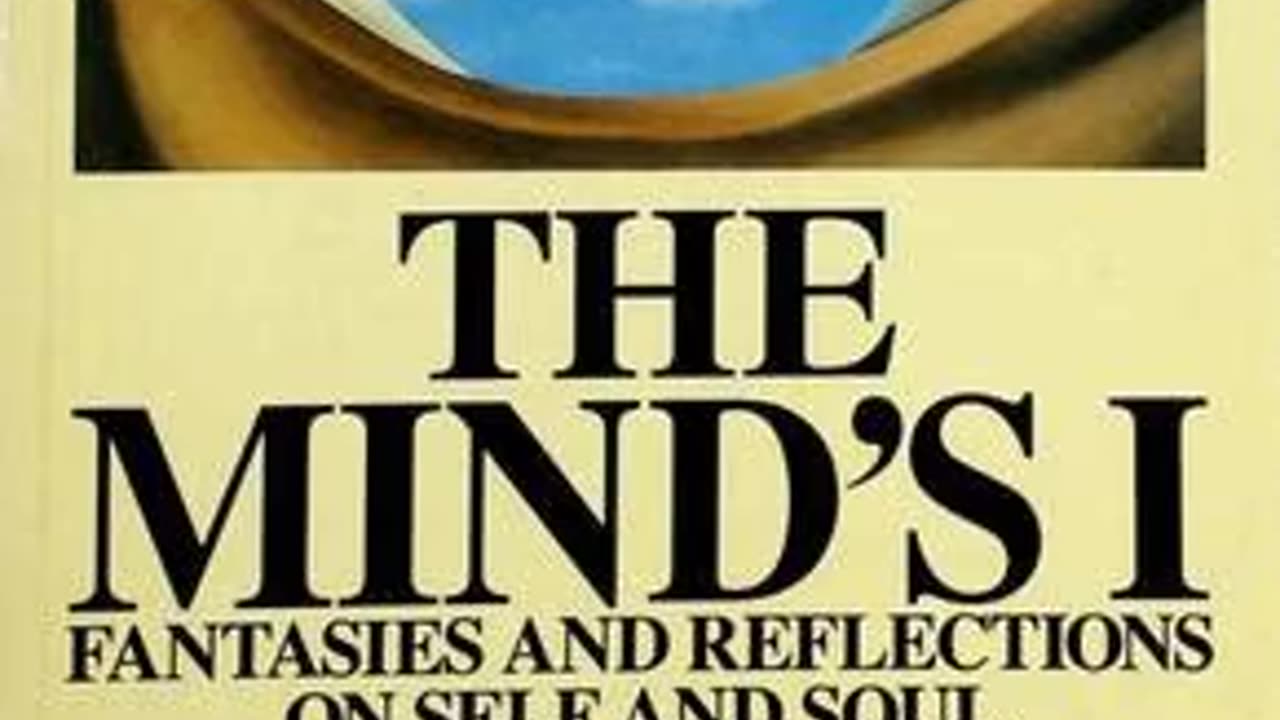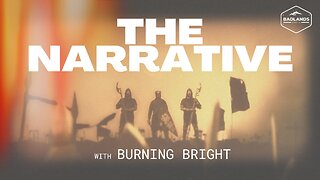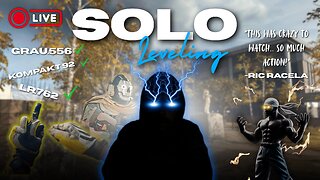Premium Only Content

The Mind's I by Douglas R. Hofstadter and Daniel C. Dennett | Summary
Buy Here: https://amzn.to/44hu1Q1
""The Mind's I: Fantasies and Reflections on Self and Soul"" is a collection of essays and thought experiments edited by Douglas R. Hofstadter and Daniel C. Dennett, published in 1981. The book explores the nature of consciousness, self-awareness, and the mind-body relationship through a diverse range of perspectives, including philosophy, cognitive science, literature, and science fiction.
Key points covered in ""The Mind's I"" include:
1. **Exploring Consciousness:** The book presents a series of essays, stories, and thought experiments that delve into the mysteries of consciousness. Contributors from various disciplines offer their insights into what it means to be conscious and self-aware.
2. **The Self and Identity:** The authors explore the concept of the self and its relationship to the mind. They examine questions about personal identity, the continuity of consciousness, and the nature of subjective experience.
3. **Artificial Intelligence and Consciousness:** The book delves into the intersection of artificial intelligence and consciousness. Contributors discuss the potential for machines to exhibit self-awareness and explore the implications of creating sentient beings.
4. **Science Fiction and Philosophy:** ""The Mind's I"" includes science fiction stories and scenarios that challenge readers to contemplate the nature of the mind and consciousness. These stories provide imaginative insights into the boundaries of the human experience.
5. **The Nature of Experience:** The authors consider various perspectives on how our experiences shape our understanding of reality. They explore questions about the relationship between perception, memory, and the construction of meaning.
6. **Language and Thought:** The book addresses the role of language in shaping our thoughts and self-perception. It discusses the connection between language, cognition, and the formation of concepts.
7. **Minds and Machines:** Contributors engage in debates about the potential for machines to possess minds and consciousness. They examine the criteria for determining whether a machine can truly be considered conscious.
8. **Ethical and Moral Considerations:** The book raises ethical questions related to the nature of consciousness, self-awareness, and the treatment of other beings, whether biological or artificial.
9. **Philosophical Paradoxes:** The authors present philosophical paradoxes and thought experiments that challenge traditional views of the mind and self. These paradoxes invite readers to critically examine their assumptions about consciousness.
10. **Interdisciplinary Exploration:** ""The Mind's I"" brings together ideas from philosophy, psychology, literature, neuroscience, and computer science. It offers a multidisciplinary exploration of the mind and self.
""The Mind's I"" provides readers with a thought-provoking and intellectually stimulating journey into the complexities of consciousness and selfhood. Through a blend of essays, stories, and philosophical reflections, Hofstadter and Dennett encourage readers to contemplate the nature of the mind and the intricate relationships between perception, identity, language, and reality. The book challenges conventional notions and invites readers to explore the frontiers of human thought and understanding."
-
 3:11:18
3:11:18
Badlands Media
1 day agoThe Narrative Ep. 18: Leaders of the Golden Age
75.4K24 -
 28:03
28:03
Adam Carolla
8 hours ago $7.13 earnedFraud, Corruption & Minecraft Mayhem - Gen Z's new Cult Classic | The Adam Carolla Show | #news
34.2K20 -
 2:37:08
2:37:08
TheSaltyCracker
6 hours agoTrump is The People's Champ ReeEEeE Stream 04-13-25
140K189 -
 4:24:35
4:24:35
Due Dissidence
15 hours agoDave Smith and Douglas Murray THROW DOWN, Judge OK's Khalil Removal, Maher Dishes on Trump Summit
38.8K35 -
 2:33:02
2:33:02
Nerdrotic
10 hours ago $17.29 earnedMysteries of Mars with Mike Bara | Forbidden Frontier 098
72.4K23 -
 3:05:07
3:05:07
IsaiahLCarter
6 hours agoApostate Radio #009: Standing Up with Eric Abbenante
29.2K1 -
 11:53
11:53
Forrest Galante
4 hours agoIs This Giant Extinct Sea Cow Still Alive?
25.8K5 -
 1:14:47
1:14:47
Josh Pate's College Football Show
7 hours ago $4.44 earnedTennessee & Nico Disaster | Portal Chaos Ahead | Biggest “What-Ifs” | Truth About Big Noon Kickoff
43.6K4 -
 2:14:43
2:14:43
Tundra Tactical
7 hours ago $4.45 earned$3200 ZEV HEARTBREAKER Contest!!! TONIGHT On The Worlds Okayest Gun Live Stream
40.8K -
 3:52:05
3:52:05
IcyFPS
5 hours ago🟢SOLO LEVELING LIVE 🟢 PREMIUM PAYDAY | SUNDAY GUNDAY |
25.4K